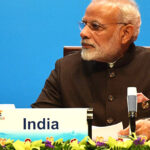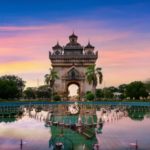
Last week, International Anti-Corruption Day came and went in Thailand without much notice. Scant attention was paid in the media on December 9, except for an article about a “commitment” by Thai Prime Minister Prayut Chan-o-cha to fight corruption and nepotism. The topic of corruption is a sore spot for the military-backed government, with Prayut recently dodging allegations that he broke ethical rules after Pheu Thai leader Sompong Amornvivat argued that the Prime Minister’s use of military housing after his retirement from the army was a special benefit that was forbidden under the Thai constitution. The Constitutional Court ruled 9-0 in favour of Prayut earlier this month.
While past governments have both railed against the evils of corruption in Thai society, virtually no progress has been made. Corruption, despite being an issue that should bind the country together, has only deepened political tensions in Thai society.

Corruption was one of the main justifications for the May 2014 coup d’etat. The junta and the National Anti-Corruption Commission (NACC) alleged that former Prime Minister Yingluck Shinawatra’s rice pledging scheme was corrupt and after a drawn out affair, found her guilty of dereliction of duty, which comes with a five-year jail sentence. The anti-Thaksin purge became a weapon of mobilisation for royalists like Suthep Thaugsuban, the former Deputy Prime Minister and People’s Democratic Reform Committee (PDRC) leader, who have wielded corruption charges as political weapons against opposition figures. Junta leaders, however, have failed to curb corruption in Thailand – and unsurprisingly, have made it worse.
Transparency International, which tests countries around the world in its Corruption Perceptions Index (CPI), ranked Thailand 85 out of 198 for 2014. However, by 2016, which was more reflective of the junta’s graft record, Thailand’s ranking plummeted 25 places to 101 out of 198. Forgotten amid the junta’s war on dissent, human rights, free expression, and draconian measures to silence political opposition, was the linkage between those authoritarian curbs and perceptions of corruption.
Commenting on Thailand’s poor performance, Transparency International warned that “while [Thailand’s new constitution] significant focus on addressing corruption, [it] entrenches military power and unaccountable government, undermining eventual return to democratic civilian rule”. Only Myanmar and Cambodia were perceived to be more corrupt among ASEAN member states.
In addition to denying Thailand the opportunity for a return to democracy, the military regime accelerated the spread of corruption by legitimising and weakening the independence of vital institutions, such as the Constitutional Court, the NACC, and the Election Commission. The junta changed the composition of the Court and ruled that vacant seats were to be filled by high-ranking bureaucrats.
The NACC has been politicised by Thaksin-aligned and military-aligned governments, however currently, it has been accused of doing the bidding of the Prayut-led government, dismissing claims that Deputy Prime Minister Prawit Wongsuwan owned a large collection of luxury watches, despite a law that requires Cabinet officials to declare assets before accepting their positions. Thailand’s Election Commission, which was appointed by the junta, also came under fire for allegedly delaying the result to find ways to manipulate the March 2019 national election in favour of the government and against the now-banned Future Forward Party.
The explosion of corruption allegations against the regime’s opponents have galvanised opposition against it. The junta’s anti-corruption fever saw the consideration of the death penalty for individuals accused of graft over 1 billion baht ($33 million), although many suggested this was merely another means by which the government could control political opponents.
Later, the regime flooded the Future Forward Party with accusations of criminal, seditious and corrupt behaviour over loans made by Thanathorn Juangroongruangkit to the party, his ownership in shares of a media company, and his “assistance” to protesters against the 2014 coup that violated a ban on gatherings of more than five people. The House Committee on Law and Justice will now attempt to find out why Thanathorn’s brother, Sakulthorn Juangroongruangkit, was not indicted on bribery charges.
Corruption should not be a partisan issue, rather it should be seen as an obstacle to development and self-actualisation. It contributes to both economic inequality and poverty and erodes the rule of law. Worse, it deprives Thailand of vital investment at a time when it could use added stimulus.
Companies warned that ASEAN governments needed to get serious about addressing graft if they wanted to attract foreign investment. Thailand has long wanted to attract additional foreign investment to its Eastern Economic Corridor (EEC), which is aimed at developing ten key industries as growth engines, including the automotive industry, electronics, agriculture, robotics, aviation, healthcare and biofuel industries. Created in 2017 by the National Council for Peace and Order (NCPO), the EEC requires billions in foreign direct investment. Thailand’s international reputation for corruption is seen as a hindrance to those aims. The risk to economic development in Thailand comes from its preoccupation with its domestic political instability, which interferes with anti-corruption efforts, and at the institutional level, exacerbates the problem.
This past November, Transparency International released its Global Corruption Barometer for Asia 2020, which revealed some disturbing trends. Among ASEAN states, Thailand ranks the worst for trust in state institutions, with 71% of people indicating they had no trust in government, while 88% of Thais believe corruption is a big problem.
The precipitous decline in trust and weakening of agencies tasked with ensuring integrity and accountability are partly responsible. Public trust in the police, already at considerably low levels, is justified by the notorious, and blatant malfeasance by the Royal Thai Police, who not only hurl chemicals at peaceful protesters, but also frequent underground Rama III Road casinos.
If the vast majority of Thai people believe that corruption is a big problem, they should expect more from their government. If trust in government institutions is near historic lows, the public should have mechanisms readily available to hold officials accountable – but that’s where the national discourse on corruption comes to a dead stop.
Accountability measures in Thailand, such as free and fair elections, are now rare. Prosecution of public officials for corruption charges, while upholding a guarantee of due process under the law is unlikely. Public institutions are far too damaged. Charges are merely political weapons. What is required isn’t something the status quo finds appealing. Public trust and faith in open, transparent, and democratic institutions can only be accomplished through democratic means.
Only democratic mechanisms will increase the likelihood that corrupt officials will be punished fairly, as a credible opposition has the authority and an incentive to uncover corrupt activities. Thai people would also have an interest in moving away from the status quo and electing officials that represent their own interests. Only democracy can create the space for a more open system of government, one where effective checks and balances restrict the ability of officials to deviate from political norms.
Instead, Thailand’s ruling elite have crippled and legitimised the institutions that make democracy possible and corruption a distant memory. To end corruption in Thailand, those damaged institutions must be restored.






